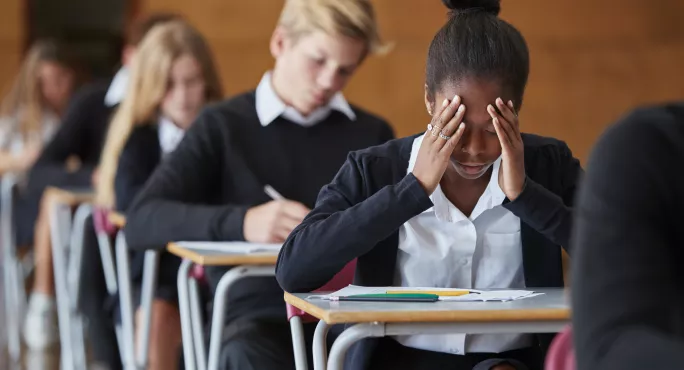- Home
- ‘Parents now realise what a tough gig teaching is’
‘Parents now realise what a tough gig teaching is’

How quickly things change.
As recently as three weeks ago, schools were unsure whether they would all closed by coronavirus (although some were already struggling to continue normal operations as staff became ill or were obliged to self-isolate). But today teachers and other education professionals are two weeks into providing in-school tuition and care to children of key workers and to those judged vulnerable and attempting to organise such things as food vouchers.
There are thousands of teachers setting and marking work by email, even teaching lessons “live” via such software as Zoom (which Downing Street uses to link journalists to its daily briefings). That group overlaps with the former, of course: and all are simultaneously concerned for their own health, and that of partners and children, parents and elderly friends.
Social media is not awash with appreciation of these educational heroes: their role is less obviously “frontline” than that of health workers. Worse, there have been depressing reports of some schools expecting staff to tick boxes and complete task-lists, apparently to prove that they’re keeping busy when their schools are (largely) closed.
Coronavirus: Parents show their appreciation of teachers
Sadly, that kind of mean-spiritedness still survives in dark corners of the system. It echoes similar strictures that some small-minded micro-managers (hopefully a tiny minority of school leaders) imposed on teachers when, not that many years ago, schools began employing exam supervisors in the summer term.
I confess I was surprised in Tes to see Harris Federation boss Sir Dan Moynihan describing the pandemic as a “golden opportunity” for schools to “use the [current] down time for a lot of curriculum development work” with the aim of reducing teacher workload for the long-term. Forgive me, but if I were still working in schools, right now I’d be concentrating on simply getting through this period, not describing it as “down time”. But, then, I was never superhuman: nor, indeed, a superhead.
By contrast, teachers have received a big thumbs-up from parents in this crisis. Forced to keep their children at home and to attempt at continuing their education, with varying degrees of input from school, they have suddenly realised what a tough gig teaching is.
Some swots were on top of it from the start (though you might argue that they’re in the trade anyway). Tes’ own North of England reporter, John Roberts, observed wryly on Twitter that his wife was: “Showing massive enthusiasm for home-schooling. Already doing a timetable. Expect us to have a motto and curriculum intent statement by the end of the week.”
For most parents, though, it’s been a tough learning experience. As one parent tweeted: “After 1 week with a seven and nine-year-old, my admiration for primary school teachers is off the scale... To keep kids that age fully focused and deliver the work they do.... Totally amazing.”
Another kept it simpler: “After 30 minutes of trying to teach my six-year-old, I think teachers should all be paid £1m a year.”
Yet another quoted a hyper-critical nine-year-old daughter, who wrote: “Now we are at home being taught by unqualified teachers.” The parent added: “I think she means me. I am trying my best.”
This dismay was echoed in an essay by a Year 8 pupil tweeted by a North-East school. “Lockdown is dreadful. I am so bored and fed up already... It is far worse than I expected it to be: I wish I was back at school. I have unending amounts of work which feel like they will go on forever.”
I don’t think this crisis will lead to million-pound salaries for teachers any time soon: but we might hope that this new-found respect for teachers and schools will persist.
Indeed, when it’s all over, let’s ensure that parents and policymakers (particularly those who are parents) remember that teaching and learning are easy for neither teachers nor pupils. As Dickens’ Mr Bumble wished (in vain) for The Law, their eyes have been opened by experience.
Don’t let them close them again
Dr Bernard Trafford is a writer, educationalist, musician and former independent school headteacher
Keep reading for just £1 per month
You've reached your limit of free articles this month. Subscribe for £1 per month for three months and get:
- Unlimited access to all Tes magazine content
- Exclusive subscriber-only stories
- Award-winning email newsletters



